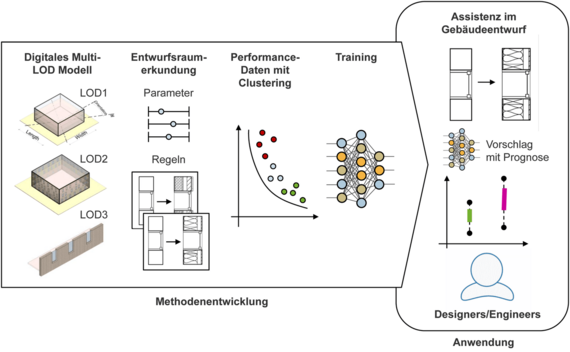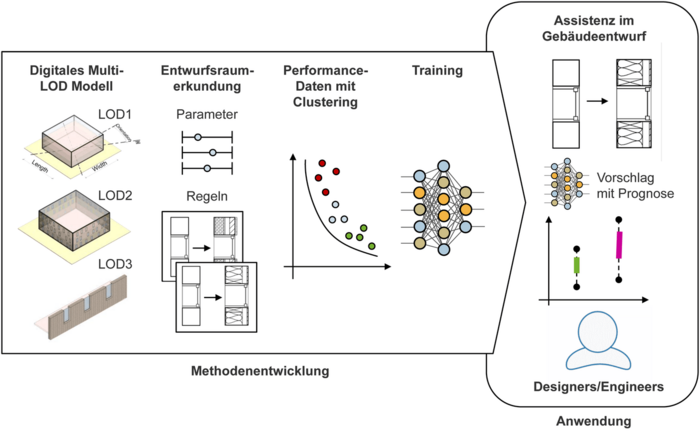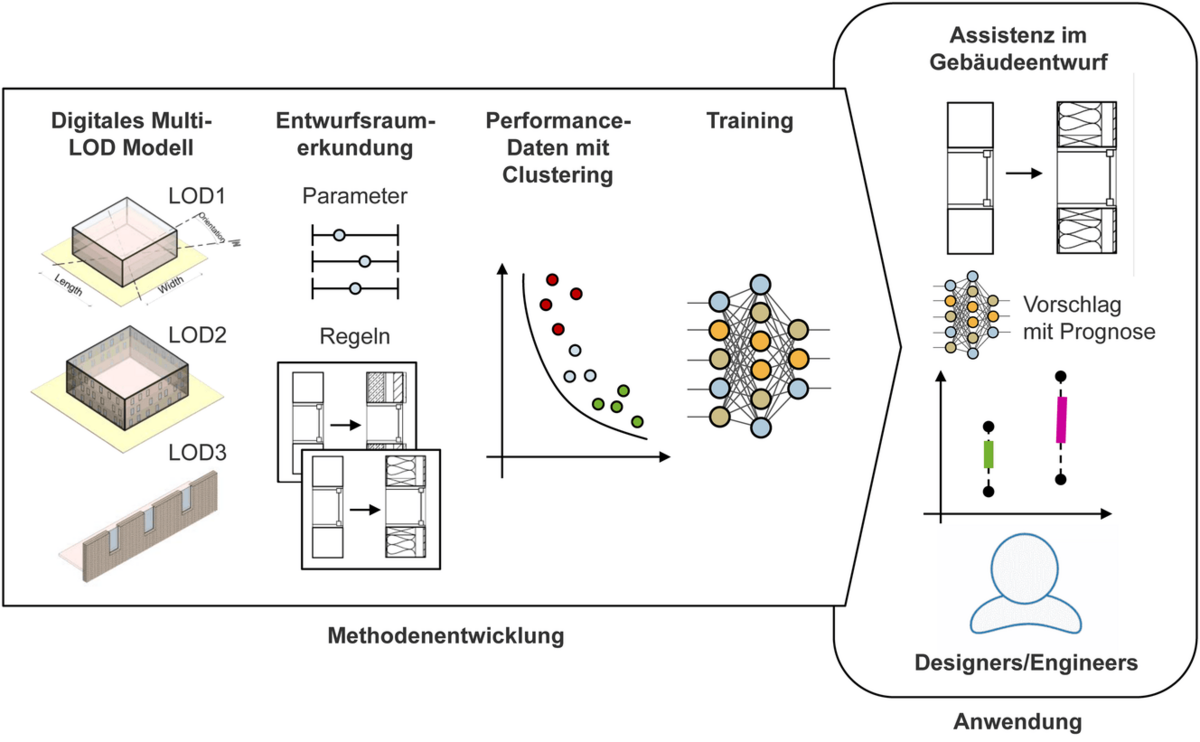


DFG Heisenberg Funding
Researcher
Prof. Dr.-Ing. Philipp Geyer
The overarching objective of the research funded by the Heisenberg Program is the application of AI, in particular ML, as an assistance for sustainable construction. Explainability of AI (Explainable AI) and integration with domain knowledge have extremely high relevance in engineering applications as a cross-cutting issue to provide verifiability and traceability and thus to meet the responsibility and need for trust of decision makers. The assistance of AI to support decision makers in design and planning is divided into three thematic functionalities to be researched:
Prediction of building performance
ML is used as a means of multidisciplinary, parametric and spatial prediction to rapidly provide information on building performance and sustainability by replacing or augmenting complex engineering simulations and calculations. In this way, informed decision making is enabled. The explainability of predictions here consists primarily in the verifiability and understandability of results. At the same time, component structures embed domain knowledge.
Recommendation of solutions and strategies
ML is used to provide recommendations in the complexity of sustainable design and planning that guide designers in decision-making situations. The recommendations are based on the prediction functionality and the modeling of design options and engineering knowledge in early phases. It is important to make recommendations explainable in a way that is comprehensible to decision makers and connects to their knowledge.
Generation of subsystems
For assessment and prediction, it is often necessary to analyze solutions in detail. AI-guided methods for generating designs and subsystems (e.g., structural details or building service systems) will be developed to relieve designers of tedious detailing work and make predictions and recommendations in early phases more accurate. Results and methods of generation must be comprehensible in order to gain the confidence of decision makers.
Duration
01/2022 bis 31/2026
Funding
Deutsche Forschungsgemeinschaft (DFG)
Identifier
GE 1652/4-1


